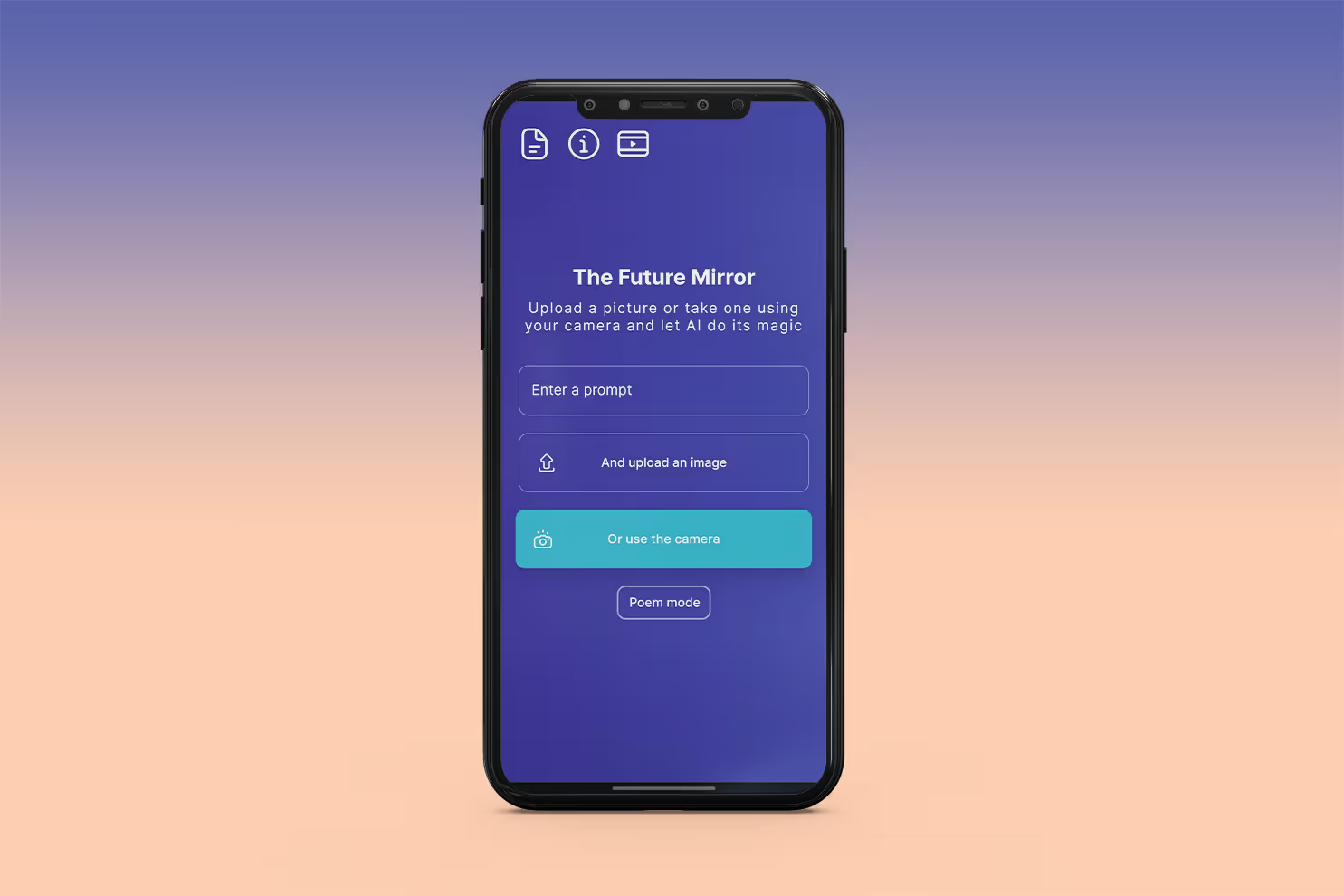Here's how it works
Create with what you have: Begin by constructing physical prototypes of future objects using everyday household items, waste, and recycled items.
Visual transformation: Through prompting, "The Future Mirror" brings your crafty prototype to life by transforming it into a detailed image of a speculative, realistic invention through a futuristic lens.
Poetic insight: Complementing the visual imagination, the tool can also craft a poem that captures the potential impact and functionality of your invention in the future to add depth and context to your creation.
Versatile and inclusive: "The Future Mirror" is designed for inclusivity and can be enjoyed in various settings - be it a structured workshop or the comfort of your home. The straightforward process ensures that individuals of all ages and backgrounds can explore and create the future.
Extend your imagination: Whether you’re crafty and curious, an educator looking to inspire students, a professional exploring futures thinking, or simply curious about the intersection of futures, technology and creativity, "The Future Mirror" invites you on a journey of discovery and innovation.

